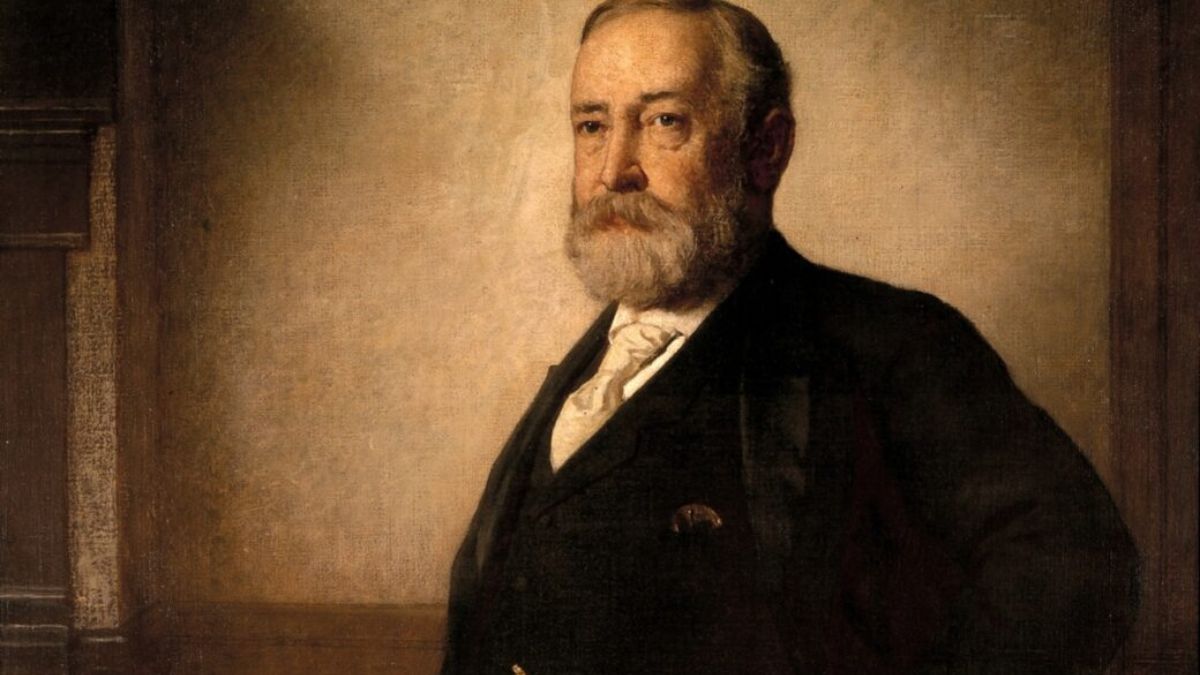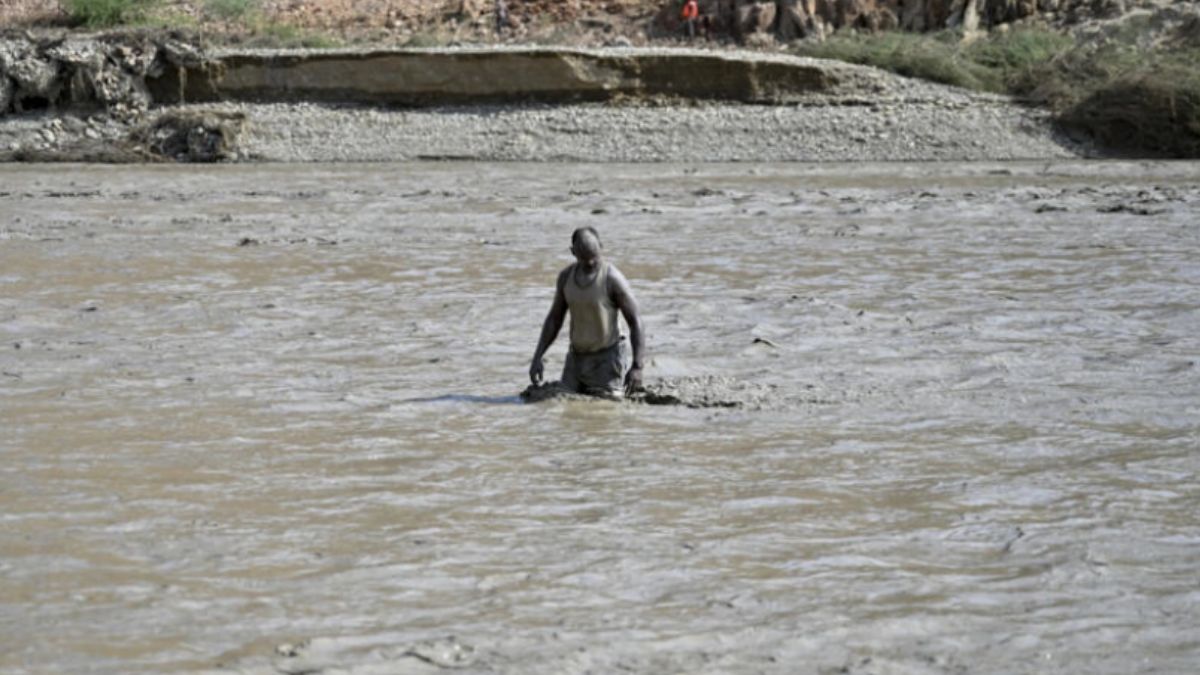During Benjamin Harrison’s presidency, the first Pan American Congress met in Washington DC. He signed the Sherman Antitrust Act into law, which was designed ‘to protect trade and commerce against unlawful restraints and monopolies’ read more
)
Benjamin Harrison is the 23rd President of the United States. Image courtesy: The White House
Editor’s Note: This is part of a series of profiles taking a closer look at US presidents ahead of the 2024 presidential election between Donald Trump and Kamala Harris.
Benjamin Harrison belongs to another time – and another America.
Harrison, for example, came up when the Republican Party was just being formed. He was an officer in the Union Army which fought the Civil War.
Harrison was the final Civil War general to serve as US president. He was the grandson of William Henry James, who briefly served as America’s ninth president.
A look at the 23rd President of the United States.
Early years
Harrison was born on August 20, 1833, on a farm in Ohio’s North Bend. His parents were John Scott Harrison and Elizabeth Irwin Harrison.
He attended Miami University in Ohio from where he graduated in 1852.
He married Caroline Lavinia Scott in 1853. He moved to Indiana to set up his practice the next year.
Politics
Harrison found himself campaigning for the newly formed Republican Party. This is despite his father advising him that “none but knaves should ever enter the political arena”.
Harrison enlisted in the Union Army during the Civil War, where he was the colonel of the 70th Volunteer Infantry and achieved the rank of Brevet Brigadier General. He resumed his law practice after the war and became well-known within Indianapolis.
In 1876, he ran for governor of Indiana but lost. He didn’t give up though – he was elected to the Indiana Senate in 1881. In the Senate, he made a name for himself by sticking up for Native Americans, homesteaders, and Civil War veterans. He also opposed the Chinese Exclusion Act, which furthered his reputation as a moral and courageous man.
Harrison was recruited by the Republicans in 1888 to run for president.
Though he lost the popular vote to his opponent Grover Cleveland, he won where it counted – in the Electoral College. Though Harrison himself offered no inducements to get votes, his supporters were said to have made many such offers.
When Matt Quay, the powerful political boss of Pennsylvania, heard that Harrison had thanked providence for his win, he said Harrison would never know “how close a number of men were compelled to approach… the penitentiary to make him President.”
Time in office
Harrison as president helped shape America’s foreign policy. It was under his presidency that the first Pan American Congress met in Washington DC.
He signed the Sherman Antitrust Act into law. It was designed “to protect trade and commerce against unlawful restraints and monopolies.”
He also entered into a treaty with Britain over seal hunting in the Bering Sea. He even sought to annex Hawaii after a US-led coup removed Queen Liliuokalani but was thwarted by the Democrats.
Harrison, who also was aided by Republicans holding both Houses of Congress, also set aside vast amounts of money to improve the country. It was under his presidency that the US Congress, for the first time not in a war, passed a billion-dollar budget.
Slammed for being a “Billion-Dollar Congress,” then speaker Thomas B Reed answered, “This is a billion-dollar country.”
Though the Harrison administration had inherited a healthy surplus from the previous regime, it quickly evaporated under the new administration.
Then, the Republicans lost the House of Representatives in 1890 – making Harrison effectively a lame-duck president for the final two years of his term.
The steel strike in Homestead, Pennsylvania, in July 1892 was among the final nails in his political coffin.
Though the Republicans renominated Harrison, he didn’t campaign much on account of his wife’s failing health. He was defeated by his old foe Grover Cleveland.
Afterwards, Harrison returned to Indiana where he married his now deceased wife’s niece.
He spent the rest of his days as a public speaker and writer.
His lectures at Stanford University were published in a book entitled Views of an Ex-President.
Legacy
Harrison’s signing of the Sherman Antitrust Act remains his biggest accomplishment.
The legislation, although weak at the time, remains arguably the most important law ever passed in American history – barring the Civil Rights Act.
His pursuit of Hawaii also put America on the path to becoming a global empire.

 1 month ago
12
1 month ago
12
)
)
)
)
)
)
)
)
)
)
)
)
)
)
)
)
)
)
)
)
)
)
)
)
)
 English (US) ·
English (US) ·